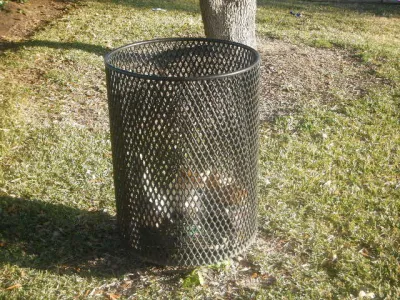Philadelphia looked at how interventions can change recycling and littering behavior.

Nandi O'Connor of GovLabPHL discusses two experiments the city of Philadelphia conducted to better understand how behavioral science could be used to increase recycling and decrease littering.
The first experiment targeted recycling behavior. While the city makes containers available to residents at designated locations, it provided lidded recycling bins to residents on routes in two neighborhoods in this case. The effect was inconclusive in one neighborhood, but recycling volumes increased in the other.
The other intervention involved increasing or decreasing the number of trash receptacles in various parks and along corridors in the city. Overall, the findings showed that increasing the number of trash containers resulted in city staff spending 30 minutes less per day picking up litter.
"We learned that existing data collection procedures are not always created for the purposes of evaluation, and the results have inspired us to improve data collection procedures for future experiments," says O'Connor. She also notes that the results will inform policy decisions as the city works to reach its zero-waste goals.
FULL STORY: How we’re using behavioural science to decrease litter in Philadelphia

National Parks Layoffs Will Cause Communities to Lose Billions
Thousands of essential park workers were laid off this week, just before the busy spring break season.

Retro-silient?: America’s First “Eco-burb,” The Woodlands Turns 50
A master-planned community north of Houston offers lessons on green infrastructure and resilient design, but falls short of its founder’s lofty affordability and walkability goals.

Delivering for America Plan Will Downgrade Mail Service in at Least 49.5 Percent of Zip Codes
Republican and Democrat lawmakers criticize the plan for its disproportionate negative impact on rural communities.

Test News Post 1
This is a summary

Test News Headline 46
Test for the image on the front page.

Balancing Bombs and Butterflies: How the National Guard Protects a Rare Species
The National Guard at Fort Indiantown Gap uses GIS technology and land management strategies to balance military training with conservation efforts, ensuring the survival of the rare eastern regal fritillary butterfly.
Urban Design for Planners 1: Software Tools
This six-course series explores essential urban design concepts using open source software and equips planners with the tools they need to participate fully in the urban design process.
Planning for Universal Design
Learn the tools for implementing Universal Design in planning regulations.
EMC Planning Group, Inc.
Planetizen
Planetizen
Mpact (formerly Rail~Volution)
Great Falls Development Authority, Inc.
HUDs Office of Policy Development and Research
NYU Wagner Graduate School of Public Service



























